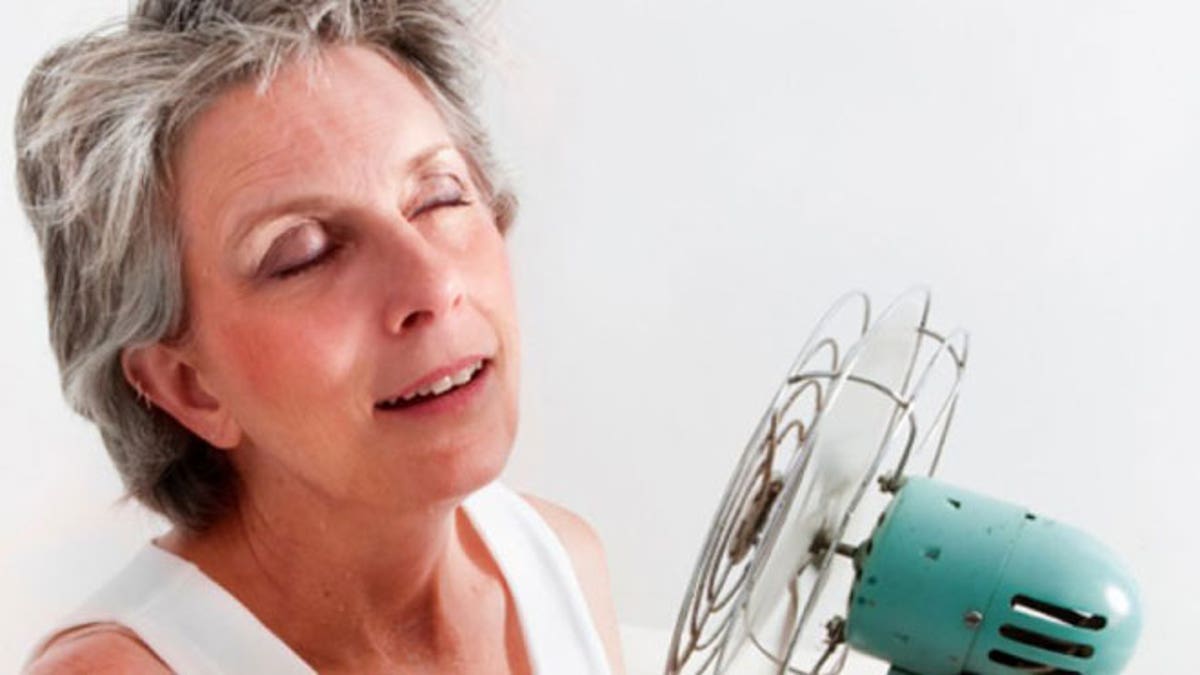
In the heat of summer, sweat is a given. But sometimes extensive sweating isn’t due to warmer weather. If you’re menopausal, you’ve most likely experienced hot flashes. Most people just assume hot flashes are par for the course, but they are actually your body’s way of telling you something is off. While hot flashes are often associated with the lack of estrogen that accompanies menopause, there are a few hormonal issues that can cause them and make you warmer than the summer sun. Even though menopause has existed forever, there are new ways to combat this old symptom.
As a gynecologist, I’ve observed that women can suffer two types of hot flashes. The first begins at your feet and feels like an inferno. It’s accompanied by a soaking sweat that often results in wanting to change your clothes. This one is usually associated with low estrogen levels, and hormone therapy can often treat it. The second type seems to start at your body’s trunk or neck. Your face can get red and you sweat, but it’s not a soaking sweat like the first. This type is more related to cortisol. Rising cortisol levels can cause severe hot flashes in spite of your estrogen levels, and recent research has provided insight on lowering hot flash-inducing cortisol so that the only heat you have to worry about is from the sun, not your body.
Here are a few tips to reduce hot flashes:
Really relax
Relaxation therapy can genuinely lower cortisol levels — which can in turn keep hot flashes less intense and to a minimum. Hypnosis is one form of relaxation, and in a study published this year, 62 women who attended hypnosis relaxation therapy sessions specifically to treat hot flashes saw a decrease in their hot flashes and their body’s concentration level of cortisol. Additionally, applied relaxation can also be used to lower cortisol levels. With this technique, you begin relaxing your muscles at the first sign of anxiety. In 2013, women who suffered seven hot flashes per day were split into two groups. The first underwent applied relaxation therapy while the second went untreated. The results showed that the first group went from suffering seven hot flashes per day to only two after three months. While both hypnosis and applied relaxation therapies can be done alone with the help of the internet, I recommend either asking your physician or looking for a group that is led by a professional before starting either method.
Give acupuncture a try
Even if you’re not a fan of needles, it may be worthwhile to look into this alternative medicinal method. In a 2012 placebo-controlled trial, 33 women who experienced daily hot flashes and night sweats were given either a form of acupuncture or a placebo treatment. Women who received acupuncture saw a greater decrease in their symptoms than women who received the placebo.
Take supplements and herbs
You can also combat cortisol-related hot flashes by taking a supplement or using herbs that help manage cortisol levels. Ashwagandha root, also known as “Indian ginseng,” has been shown to substantially reduce levels of cortisol, according to a study published in 2012. And the supplement phosphatidylserine has been shown to lower cortisol concentrations over the course of just ten days. As always, check in with your healthcare provider before taking any supplements and for suggestions on dosage.







































